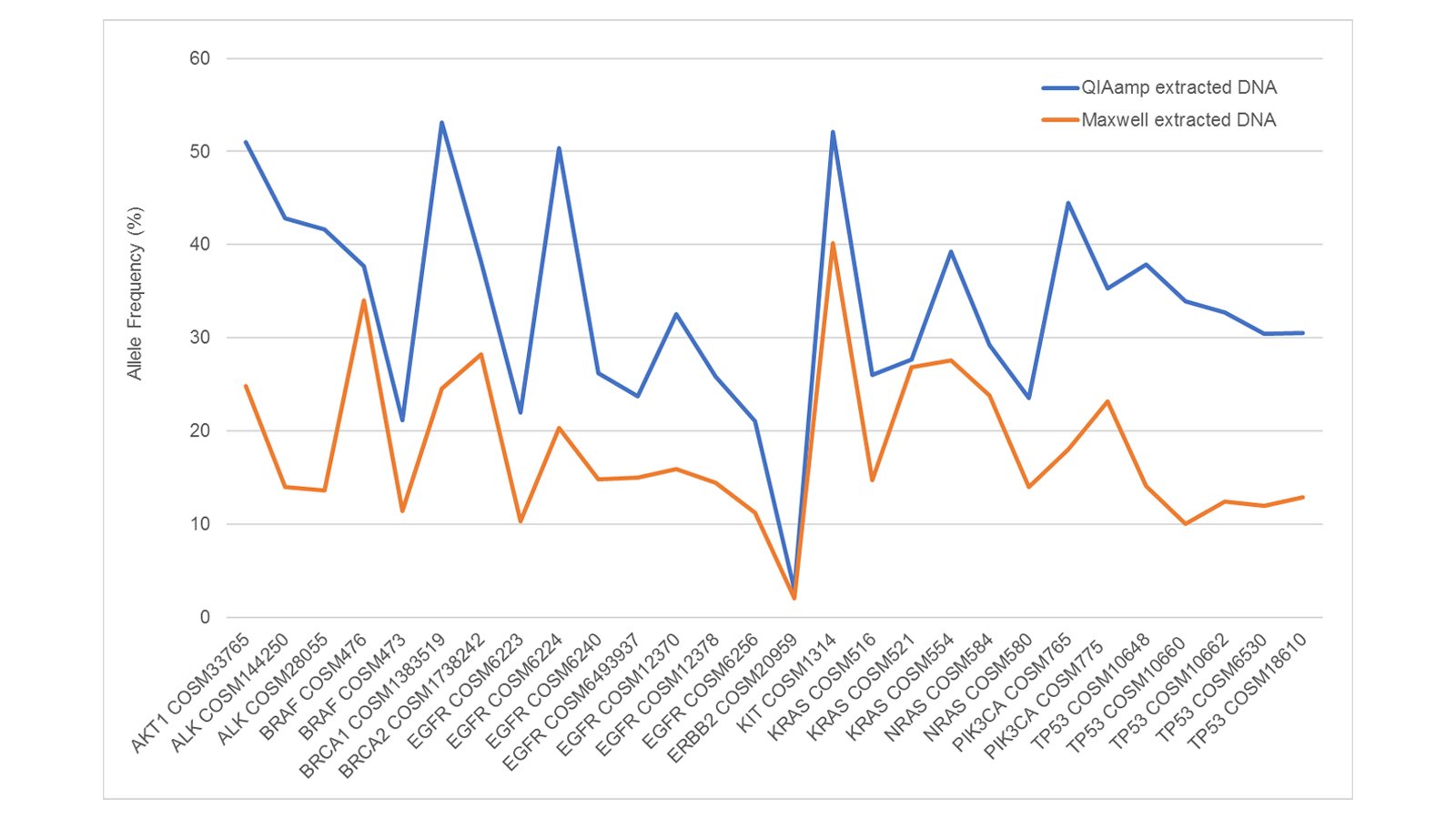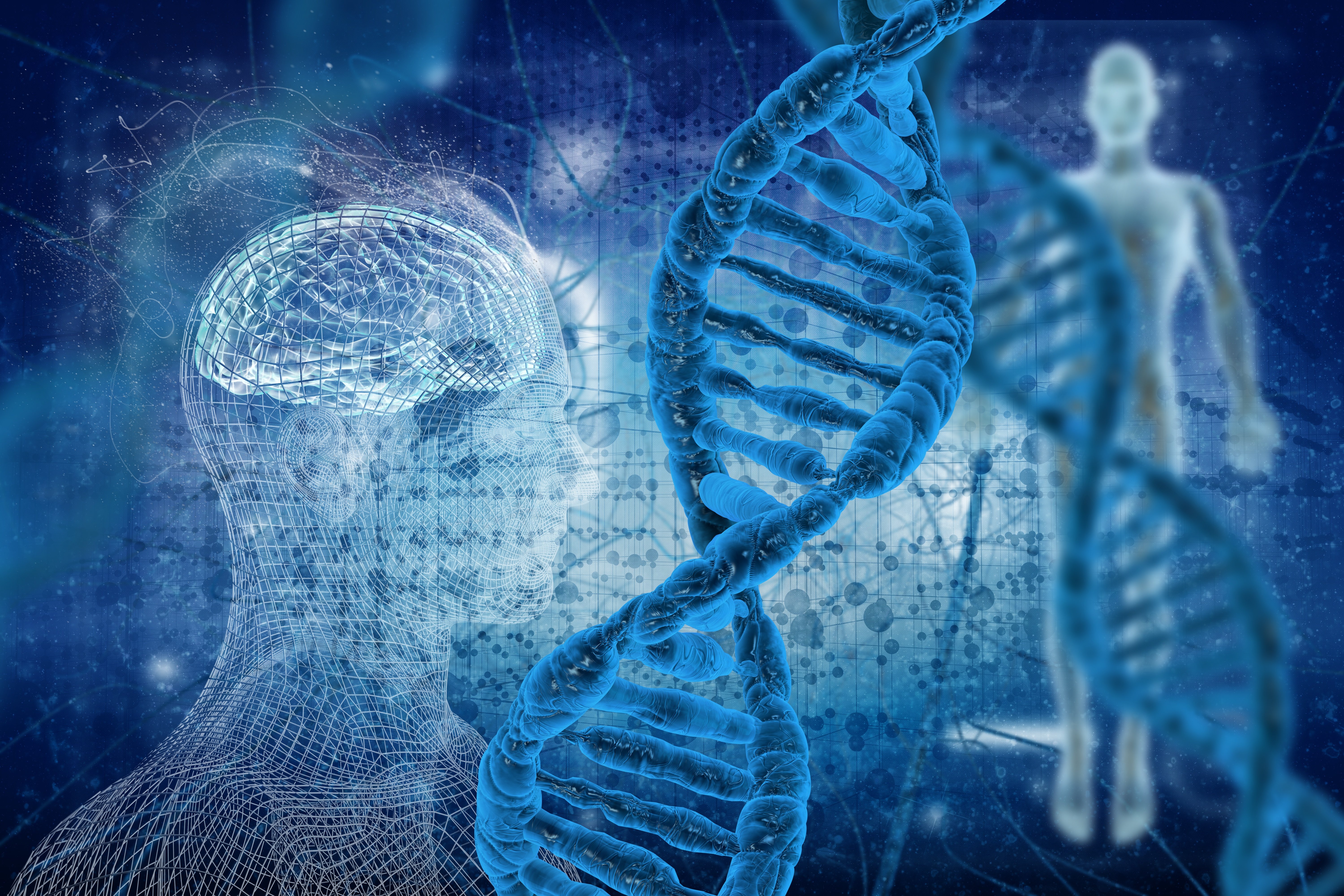Tumor profiling assay workflows start from a tissue biopsy sample that is formalin fixed and paraffin embedded (FFPE), a process that introduces various kinds of damage in the nucleic acids in the tissue specimen. Reference materials that closely mimic the damage profile of patient FFPE samples are lacking. Depurination, depyrimidination, deamination, oxidation, nicks, and double strand breaks may be found in DNA extracted from FFPE tissue, despite the use of extraction kits that attempt to repair some of this damage. We have developed a formalin-damaged, multiplexed biosynthetic reference material, Seraseq® Compromised FFPE Tumor DNA, as well as a companion wild-type (WT) material, Seraseq Compromised FFPE WT, to mimic the damage found in patient samples that can be used to assess the entire tumor profiling workflow. We compared the performance of these reference materials in downstream assays to that of FFPE material with minimal DNA damage such as the Seraseq FFPE WT (DNA/RNA) RM product.
Choose your Article Focus | NGS | Molecular & Serology
Dana Ruminski Lowe, Ph.D.
Recent Posts
Design and Development of Compromised FFPE Reference Materials
Category: NGS
Posted by
Dana Ruminski Lowe, Ph.D. on Aug 11, 2020 12:00:00 AM
0 Comments Click here to read/write comments
CNVs and Tumor Profiling: New CNV Materials for Breast, Lung, and Brain Cancer
Category: NGS, cancer, reference materials
Posted by
Dana Ruminski Lowe, Ph.D. on Feb 14, 2018 12:00:00 AM
Simply described, copy number variations (CNVs) are DNA segments present at a variable copy number in comparison to a normal genome. It was originally thought that a CNV consisted of a region of greater than 1 kilobases, however advances in technology have allowed for identification of CNVs as small as 50 basepairs1.
0 Comments Click here to read/write comments




